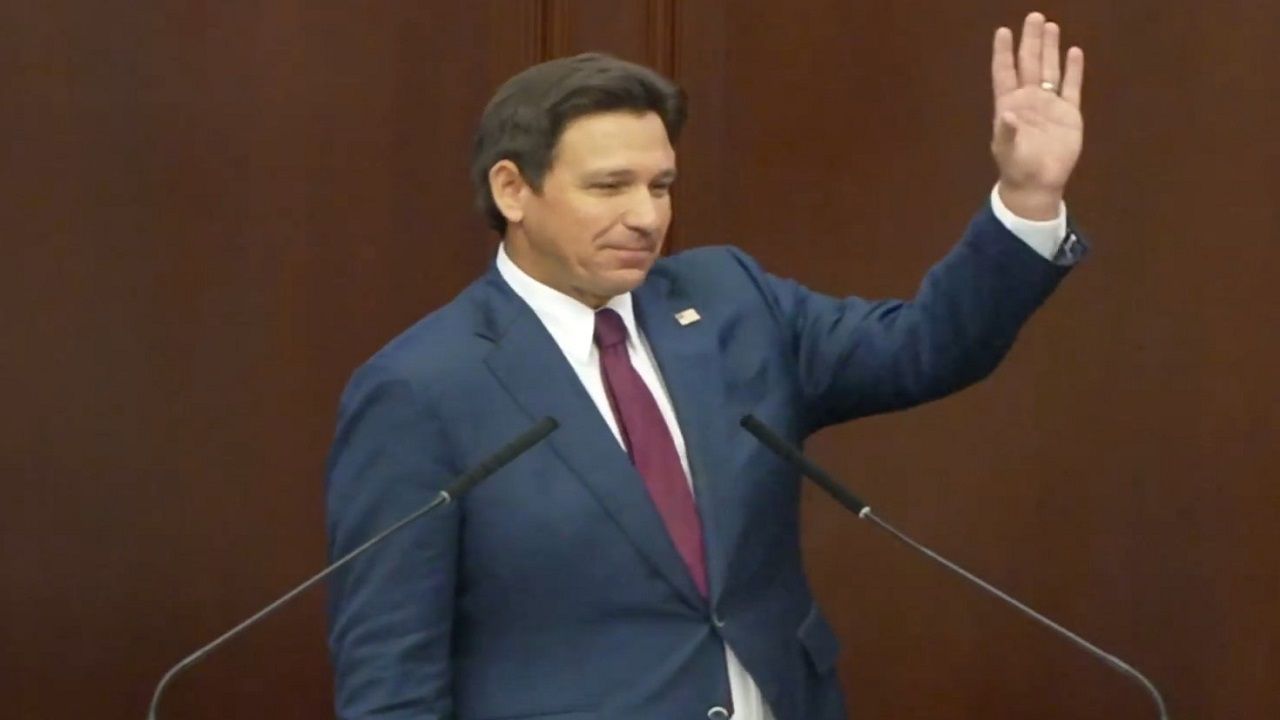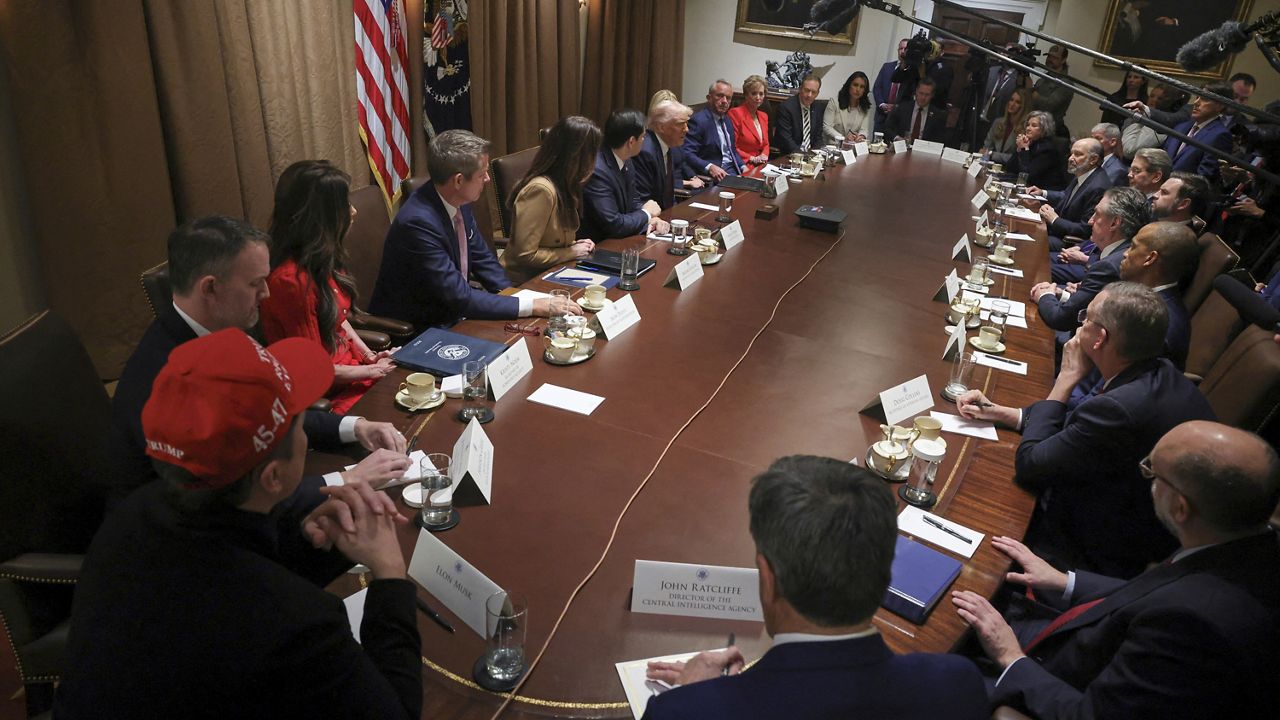Florida lawmakers reject a bill to allow concealed weapons on college campuses, and federal intel officials pressed for answers about national security breach.
Florida lawmakers seek to permanently reduce state's sales tax
Members of the Florida House are considering a proposal to permanently reduce the state's sales tax.
If approved, House Speaker Danny Perez said Florida would be the first state in U.S. history to do so.
The current sales tax in Florida is 6%, but the proposal would reduce it to 5.25%.
“We often talk about how to improve affordability in Florida, and our strategies usually involve spending money on more government programs," Perez said. "But this year, we'll try a novel concept and make Florida more affordable by giving the people of Florida their own money back to them."
While Democrat Johanna Lopez said she liked the idea of reducing costs for Floridians, she was concerned about how the cut would be paid for.
“We feel excited when we heard that we're saving money to our taxpayers, but we only we also have this concern about where are we going to get that money," Lopez said. "But I trust that we have great, great legislators in Tallahassee. And I know that we're doing a lot of bipartisan efforts in, in, in fixing, a lot of expenses."
While there is a push in Tallahassee to reduce costs and make the government more efficient, there is no information currently available on how the state would make up the lost sales tax revenue. Also, the proposal to permanently reduce Florida's sales tax joins another proposal to eliminate property tax in the Sunshine State.
If both proposals are passed, experts say it will result in a large loss in state revenue, which would have to be made up somewhere else in the budget.
The Atlantic releases entire Signal chat showing Hegseth's detailed attack plans against Houthis
The Atlantic on Wednesday released the entire Signal chat among senior national security officials, showing that Defense Secretary Pete Hegseth provided the exact timings of warplane launches and when bombs would drop — before the men and women flying those attacks against Yemen's Houthis this month on behalf of the United States were airborne.
The disclosure follows two intense days during which leaders of President Donald Trump's intelligence and defense agencies have struggled to explain how details that current and former U.S. officials have said would have been classified wound up on an unclassified Signal chat that included Atlantic Editor-in-Chief Jeffrey Goldberg,
White House press secretary Karoline Leavitt has said no classified information was posted to the Signal chat, a stance she reiterated at Wednesday’s press briefing. Leavitt told reporters that the president has seen the full messages shared in the Signal chat and stressed that he “continues to have confidence in his national security team.”
Sen. Roger Wicker, R-Miss., chairman of the Senate Armed Services Committee, said he and Rhode Island Sen. Jack Reed, the committee's top Democrat, plan to send a letter to the Trump administration requesting an inspector general investigation into the use of Signal. They are want a classified briefing with a top administration official "who can speak to the facts" of the episode.
Very specific texts were revealed
What was revealed was jaw-dropping in its specificity and includes the type of information that is kept to a very close hold to protect the operational security of a military strike. But Hegseth's spokesman, Sean Parnell, said in a statement Wednesday that "there were no classified materials or war plans shared. The Secretary was merely updating the group on a plan that was underway."
In the group chat, Hegseth posted multiple details about the impending strike, using military language and laying out when a "strike window" starts, where a "target terrorist" was located, the time elements around the attack and when various weapons and aircraft would be used in the strike. He mentioned that the U.S. was "currently clean" on operational security."
"Godspeed to our Warriors," he wrote.
"1215et: F-18s LAUNCH (1st strike package)"
"1345: 'Trigger Based' F-18 1st Strike Window Starts (Target Terrorist is @ his Known Location so SHOULD BE ON TIME – also, Strike Drones Launch (MQ-9s)"
"1410: More F-18s LAUNCH (2nd strike package)"
"1415: Strike Drones on Target (THIS IS WHEN THE FIRST BOMBS WILL DEFINITELY DROP, pending earlier 'Trigger Based' targets)"
"1536 F-18 2nd Strike Starts – also, first sea-based Tomahawks launched."
"MORE TO FOLLOW (per timeline)"
"We are currently clean on OPSEC" — that is, operational security.
"Godspeed to our Warriors."
Goldberg has said he asked the White House if it opposed publication and that the White House responded that it would prefer he did not publish.
Signal is encrypted, but can be vulnerable
Signal is a publicly available app that provides encrypted communications, but it can be hacked. It is not approved for carrying classified information. On March 14, one day before the strikes, the Defense Department cautioned personnel about the vulnerability of Signal, specifically that Russia was attempting to hack the app, according to a U.S. official who was not authorized to discuss the matter publicly and spoke on the condition of anonymity.
One known vulnerability is that a malicious actor, with access to a person's phone, can link his or her device to the user's Signal and essentially monitor messages remotely in real time.
Leavitt is one of three Trump administration officials who faces a lawsuit from The Associated Press on First and Fifth Amendment grounds. The AP says the three are punishing the news agency for editorial decisions they oppose. The White House says the AP is not following an executive order to refer to the Gulf of Mexico as the Gulf of America.











